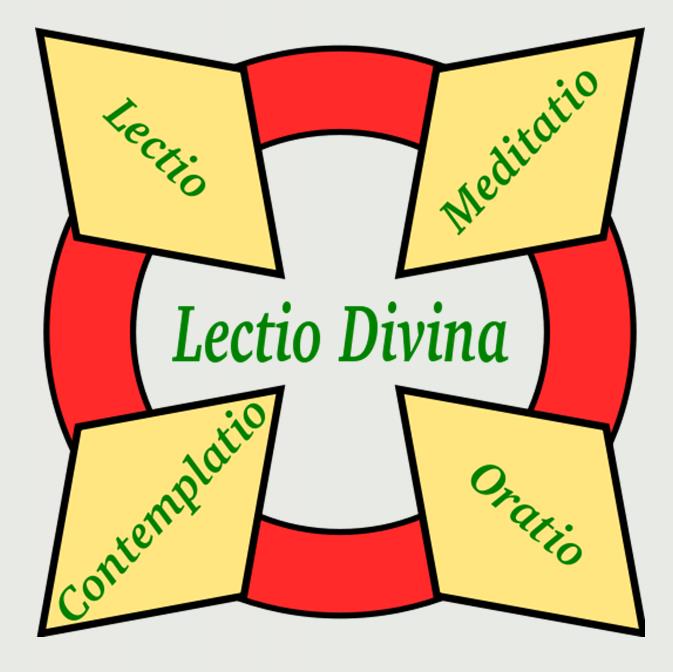The fourth and last step of the Diving Reading is to contemplate – that is, to stop and be silent while allowing everything you have read, mediated on, and prayed about take shape in your life. This is where we use our intuition in order to coalesce the previous three steps. It is meant to consummate the union of our mind and God’s truth, our heart and God’s love, our life and God’s life, our person and the person of God.
Since it is a time of silence – which is hard for most people – it is easy to skip this part, but we must NOT skip it as it is the most important part. It is during this final step that we let go of our own ideas and plans and let God’s ideas and plans wash over us. It is a time of silent prayer; of breathing in all that happened.
The spiritual discipline of “Contemplative Prayer” comes into play here:
“Contemplative prayer is silence, the ‘symbol of the world to come’ or ‘silent love.’ Words in this kind of prayer are not speeches; they are like kindling that feeds the fire of love. In this silence, unbearable to the ‘outer’ man, the Father speaks to us his incarnate Word, who suffered, died, and rose; in this silence the Spirit of adoption enables us to share in the prayer of Jesus.” –from the Catechism of the Catholic Church
In other words, the contemplative step is a way of cementing everything together as one.
A practical tip: before you start, set a timer for five or seven minutes and then don’t look at it until it goes off. This will force you to focus on sitting there and processing the first three steps while giving you the security that you won’t drift off and miss your next appointment. 😀








